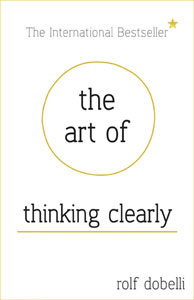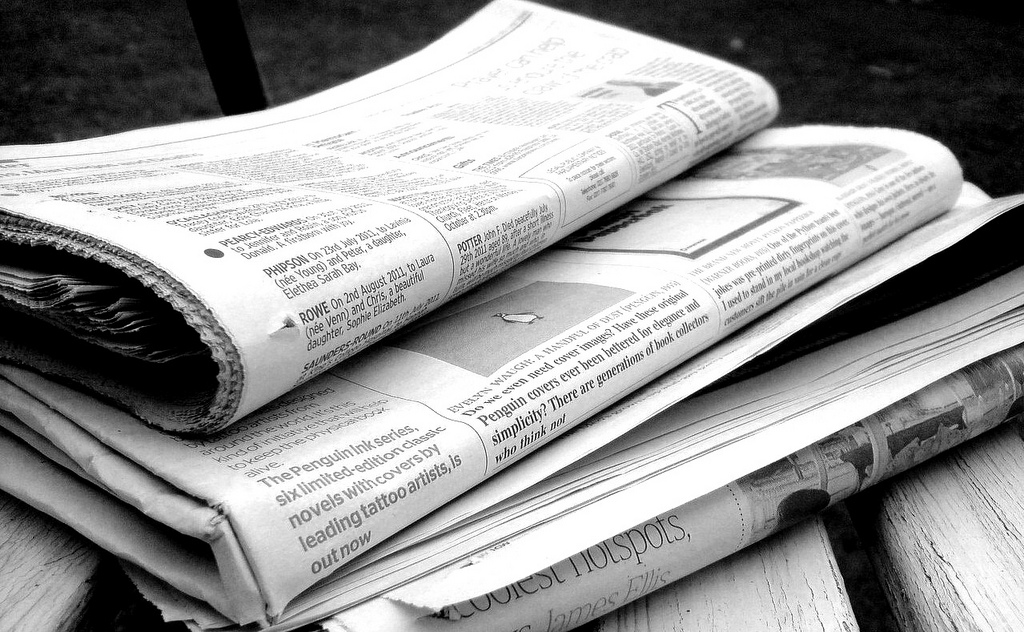Editors’ Letters: News keeps us connected
Swiss economist Rolf Dobelli may not be a household name to you, but he is famous across the world for refusing to consume any kind of news.
Last week, he listed 15 reasons to avoid news altogether, citing the fact that it stunts creativity, wastes time and makes us view everything in a superficial way. After a four-year exile from news, Dobelli portrays himself as a recovering drug addict who has managed to eradicate a poisonous habit.
 But in fact, the writer of The Art of Thinking Clearly insults our intelligence by portraying those who are interested in the world around them as zombie-like robots.
But in fact, the writer of The Art of Thinking Clearly insults our intelligence by portraying those who are interested in the world around them as zombie-like robots.
It is unfortunate for Dobelli that his argument preceded the horrific terrorist attack at the Boston Marathon, an abominable act that rightly received worldwide coverage.
Without the harrowing personal accounts, grotesque pictures and fluctuating updates on the pursuit of the bombers, the world would have remained none the wiser to an atrocity which has moved people from Scotland to Switzerland, from China to Croatia.
Presumably Dobelli was blissfully unaware of these events, ambling around with purity of mind as bloodied victims put their lives on the line to help others in need.
He may knowingly point to one of his fifteen commandments – ‘Thou shalt not read news because it reminds us of one’s own passivity’.
Except this is an entirely subjective view. We can choose to be passive to domestic or world events, or we can gain a sense of perspective from them; we can let them pass us by, or we can use them as a platform to volunteer or donate, or to spread the word of injustice.
Reading and watching coverage of fighting in Syria, whilst reading about those who have been hit the hardest by the government’s austerity measures, makes us realise just how lucky we are.
Without a perspective on the world, we become insular creatures meandering inside the claustrophobic bubble of our own insignificant existence.
Dobelli’s radical opinions on news consumption are misplaced, creating a mystical fantasy land where nobody needs to know anything that doesn’t concern them. If the world actually worked like that, we would be in a lot of trouble.
If you want to shut yourself off from everything that is happening around you, denying its inevitable impact on what we think, how we behave and who we look up to, then Rolf Dobelli is right: enjoy your blissful ignorance.
But if life in the real world still satisfies you, then pop the bubble of existence he is trying to create for you.

Comments (2)
I don’t agree with Dobelli’s thesis; however, doesn’t the reference to the Boston Bombing indicate the merits of his case. You suggest that it was vital for us to be updated on the pursuit of the suspects and the injuries caused and then dismiss the idea that we are passive observers – is it really the case that up-to-the-moment coverage allowed people in Britain to help bring the terrorist to the authorities?
And on the shallowness point – doesn’t your choice to talk about Boston demonstrate the problem – placed in any kind of perspective it was not, objectuvely, the most dire or significant event that happened around that time – the news biases us towards high-impact terror attacks in the West (when car bombs kill dozens more everyday in the Middle East), certain “celebrity” court cases and meaningless party political gossip.
Hi Jamie, thanks for your comments.
By dismissing the idea that we are ‘passive observers’, I’m referring more to our emotional investment. People in Britain would have been moved by the images, stories and tragedies connected with Boston; it united the world in a feeling of loss and grief. How else would worldwide donations have flooded in, were it not for this global connectivity? It would be naive to suggest that somebody in Britain would see or read something that would influence the pursuit of the culprits – however, it may well trigger a response such as a donation, whilst putting their own problems in perspective. Surely this is a good thing?
I do think you have a good point about what qualifies as ‘news’, though – especially with the Middle East point. Dobelli is right when he suggests that some news is trivial and washes over us – we all hierarchise news. But domestic triviality (politics, celebrities) is down to the consumers. The Sun (for example) may prioritise trivial news, but whilst they remain the newspaper with the highest circulation, they won’t change. To a large extent, it is down to us as consumers to decide what news is relevant.